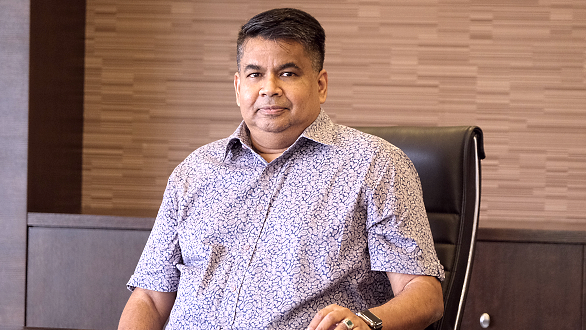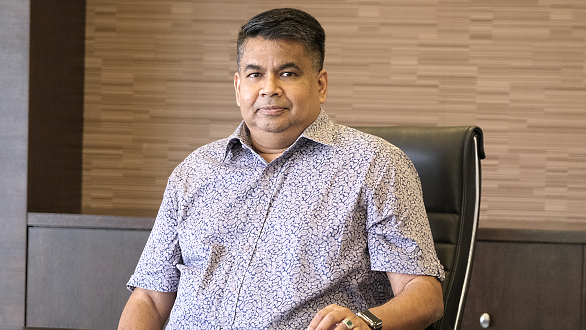
Have you ever faced the situation where an organisation disregards the talents within its employees?
Whether the talent is natural or developed with the organisation, the talent should be getting the supposed acknowledgement by the organisation.
This carelessness over employees’ talent can make the latter begin to look for other avenues that can fulfil their career goals.
It is the same issue that has affected various countries and organisations, a situation called brain drain.
Brain drain is a situation where talented and highly-skilled human capital moves to another place to look for jobs or for their career goals’ continuity.
In reality, brain drain is such a big loss to a country. Even more worrying, those involved in this brain drain happen to be in the most critical careers such as engineers, doctors, IT experts, architects, astronomers, academicians and so on.
It leads Malaysia to have lost the talent and expertise that can increase the economic progress, life development and people’s well-being.
This issue needs to be stopped on the premises the country has invested a big sum of money and facilities for an individual’s career development process.
Thus, the country has the right to claim it back and obtain some reward or return in the form of their contribution to the country’s development.
Looking into the context of organisational management, brain drain is something that needs to be taken seriously in ensuring the sustainability of the organisation and the achievement of the goals that have been set.
This is due to the fact that great investment has been done by an organisation, especially for human capital development activities in training and development.
Studies in the field of organisational behaviours have shown some factors that lead to brain drain in an organisation. Some include:
◾Talented human capital is not acknowledged by the organisation. This may be due to the organisation’s lack of awareness of such talent in the organisation, or praises and accolades often granted to external talents (brain gain) to increase the reputation of the organisation.
This absent-mindedness causes workers to feel that the knowledge they have is undervalued by the current organisation.
These talented employees tend to be more appreciated by external parties who ‘discreetly’ find out or detect about these talents, which will soon be used in other organisations.
It is not surprising that there are employees who do not have a ‘place’ in the organisation but are excellent and famous to other organisations and society.
◾Low incomeor reward and limited career development and progress in an organisation can be the factor behind brain drain.
The migration of employees to other organisations will ensure a more interesting salary and a more guaranteed career development.
◾Inconsistent, non-structured career path. A frequent change in the career path also the occupation’s term and condition makesthe brain drain even more obvious in the organisation.
This includes the element of discrimination and non-transparency in an individual’s planning and job promotion.
◾Brain drain can also happen when employees do not feel comfortable with the organisation’s micro-management pressure and different directions.
These varying directions can create an internal conflict to the point that loyalty for the organisation begins to wane.
◾Rare, almost non-existent appreciation by the organisation can also lead to an employee’s brain drain.
Acknowledgement and praises are always given to those who have good positions and titles in the organisation.
Maslow’s famous motivation theory shows that a small appreciation given to an individual who has accomplished something in the organisation will not bring about better motivation to the organisation.
◾Brain drain is alsopersistent in individuals who prioritise facilities and competitive technology, as well as the opportunity to obtain a wider working experience.
Based on the discussion that can lead to this brain drain issue, organisations should take some steps in addressing this issue.
Some include improving the strategic planning of human resources covering several important strategies that can retain talents in the organisation.
Also, the career development strategy in the organisation must be improved through the more appealing provision of career development in acknowledging existing talents in the organisation, not to mention the work-life balance in addressing this brain drain issue.
This balance struck by individuals between work and family can improve mental well-being and further increase the organisational and national productivity.
Brain drain leads to various forms of emotions among the members of the organisation, especially in terms of the needs for their service, future career paths and challenges of the organisational environment.
All of these can cause individuals in the organisation to face conflicts, stress and can affect their health.
Thus, emotional well-being is essential to be considered in understanding the brain drain issue.
The emotional well-being will lead to a new dimension in ensuring the paradigm shift of disappointment due to brain drain to a diaspora of talent and improved skills in facing future challenges.

(Professor Dr. Zafir Khan bin Mohamed Makhbul is Dean, UKM-Graduate School of Business, Universiti Kebangsaan Malaysia.)
ADVERTISEMENT
ADVERTISEMENT








































